Workplace events—like office parties, conferences, and team outings—are meant to encourage collaboration and strengthen professional relationships. However, in some cases, these settings create opportunities for inappropriate behavior, including sexual harassment. If a work-sponsored event made you feel unsafe or uncomfortable due to harassment, it’s crucial to understand your rights and options.
At Kaplan Employment Law, our experienced Florida sexual harassment attorneys fight to protect employees. If you’ve been harassed at a company-sponsored event, you may have legal grounds for a claim. We’re here to guide you through the legal process and help you seek justice.
What Is Sexual Harassment at a Workplace Function?
Sexual harassment at workplace functions occurs when inappropriate, unwelcome behavior happens in work-related settings, including office parties, networking events, company retreats, or conferences. These incidents often involve blurred professional boundaries, alcohol, or power imbalances.
Common examples include:
- Unwanted advances or inappropriate comments at office parties.
- Unnecessary touching, suggestive remarks, or explicit jokes at team outings.
- Requests for sexual favors in exchange for promotions or career opportunities.
Why Does Harassment Often Occur at Workplace Functions?
Work-sponsored events often take place in relaxed settings with alcohol, informal conversations, and blurred workplace boundaries. These factors increase the risk of inappropriate behavior. Additionally, power dynamics between managers and employees can lead to situations where employees feel pressured or intimidated.
Examples of Sexual Harassment at Workplace Functions
Harassment at work-sponsored events can take many forms. Here are some common examples:
Inappropriate Behavior at Social Gatherings
At events like holiday parties or team happy hours, inappropriate behavior may include:
- Making sexually suggestive comments or jokes.
- Unwanted touching, such as hugs, groping, or assault.
- Sharing explicit photos or videos in person or via text.
Sexual Harassment at Conferences or Seminars
Professional gatherings like conferences or seminars can also lead to harassment, including:
- Persistent advances or inappropriate remarks during networking events.
- Suggesting a “private meeting” for professional discussions that turns personal.
- Invites to hotel rooms, drinks after events, and requests for sex.
Quid Pro Quo Harassment in Event Settings
At workplace functions, individuals in positions of power may use the setting to exploit employees. For instance:
- A manager offering a promotion in exchange for sexual favors.
- Threatening demotion or termination for refusing advances.
If you’ve experienced any of these behaviors, consulting a Florida sexual harassment lawyer can help you explore your options.
Legal Protections for Employees at Work Functions
Both federal and Florida laws protect employees from sexual harassment, even when it occurs outside of regular work hours or offsite:
- Title VII of the Civil Rights Act prohibits sexual harassment in all work-related settings, including events.
- The Florida Civil Rights Act ensures additional protections and allows employees to file claims with the Florida Commission on Human Relations or the EEOC.
Employers are responsible for ensuring that workplace functions are free from harassment. Failure to address complaints or take preventative measures can make them legally liable.
How to Prove Sexual Harassment at Workplace Functions
Proving harassment at a work-sponsored event requires gathering evidence and demonstrating how the behavior impacted your work environment.
Evidence You Need to Build a Sexual Harassment Claim
Key evidence includes:
- Photos or Videos: Visual documentation of inappropriate behavior at events.
- Emails or Messages: Communications related to the event that contain suggestive or inappropriate content.
- Incident Notes: Detailed records of what happened, including dates, times, and individuals involved.
Establishing Employer Responsibility
Employers can be held liable for harassment at work-sponsored events if they fail to act. To strengthen your claim:
- Follow Reporting Procedures: Report harassment as outlined in your employee handbook (HR, supervisor, or ethics hotline).
- Cooperate With Investigations: Provide any evidence and fully cooperate with HR or investigators.
- Show Lack of Corrective Action: If your employer ignored or failed to investigate, this may indicate liability.
- Document Retaliation: If you were fired, demoted, or faced negative consequences after reporting, you may have a stronger retaliation claim.
If your employer failed to protect you, a Florida sexual harassment attorney can help you explore legal options.
What Compensation Can You Recover in a Workplace Harassment Case?
Victims of workplace harassment have the right to seek compensation for the harm they’ve endured, including:
Emotional Distress Damages
Harassment can cause significant emotional harm, including stress, anxiety, and embarrassment. Compensation for these impacts is often available.
Lost Wages and Career Opportunities
If harassment led to missed promotions, demotions, or forced resignation, you may recover lost wages and compensation for career setbacks.
Legal Fees
Successful claims often include reimbursement for legal fees, ensuring victims aren’t financially burdened for seeking justice.
We Make the Difference in Your Story.
FAQs about Sexual Harassment at Workplace Functions
Can I sue for harassment that occurred off-site or after hours?
Yes. If the harassment happened at a work-sponsored event, even off-site or after hours, you may have grounds to file a sexual harassment claim.
How do I report sexual harassment at a workplace function?
Report it as outlined in your employee handbook (HR, supervisor, or ethics hotline). Document everything and cooperate with any investigation. Consult a Florida sexual harassment attorney.
What if my employer ignored my complaint about harassment at a work event?
Employers are legally obligated to address harassment complaints. If they fail to act, consult a Florida sexual harassment attorney to file a claim with the Florida Commission on Human Relations or the EEOC.
How long do I have to file a claim for harassment at workplace events in Florida?
You generally have 300 days to file with the EEOC or one year under Florida law. Acting quickly helps preserve evidence and protect your rights.
Protect Your Rights After Harassment at a Workplace Event
Sexual harassment at workplace functions is not just inappropriate—it’s illegal. If you’ve been harassed at a work-sponsored event, Kaplan Employment Law is ready to fight for your rights.
Fill out our form today for a free Florida employment case review.










